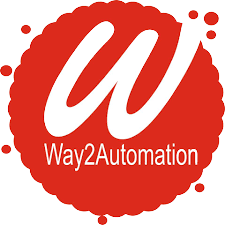New feature in Selenium 4 -
Mock offline network using ChromeDevTools and Capture Network Request URL and Request Method
We can now emulate or mock an offline network using ChromeDevTools (CDT). This is a new feature introduced in Selenium 4.
We start with creating an object of DevTools and then create a devTools session
We then enable few network parameters (maxTotalBufferSize etc).
Below is a standard snippet that we can use to set the parameters
We are now set to emulate an offline network.
Select any connection type: Cellular2G, 3G etc
Let us make our first parameter as ‘true’. The default boolean value is offline as shown below. Since we are emulating an offline network, let this value be ‘true’.
Rest of the parameters are standard
Let us now add a listener that will keep listening for any exceptions:
devTools.addListener(loadingFailed(), loadingFailed -> System.out.println("Reason for failure --> " + loadingFailed.getErrorText()));
We have to import the below static method. Make sure that the version of devtools (here v85) matches the version of other import statements as seen below:
import static org.openqa.selenium.devtools.v85.network.Network.loadingFailed;
import org.openqa.selenium.devtools.v85.network.Network;
import org.openqa.selenium.devtools.v85.network.model.ConnectionType;
We can now launch any website
Below is our complete script
Run the script.
Notice below that the browser opens but the site is not loaded (since our script is emulating offline behaviour)
Notice below, the console prints the error text message by listener
This is how we can emulate an offline network.
Let us now see how to capture network request URL and request method.
First of all let us launch a website on a chrome browser, right click and inspect the page, Click Network tab and further click ‘All’
Refresh the page. You can see below that various API calls are being made
Let us select any and go to the ‘Headers’ section on the right. We can see Request URL and Request Method
Same is true for other calls
Let us see how to capture this header information using chrome devTools in Selenium 4.
The following piece of code will do the needful. We have already discussed lines 17-21.
In line#23, we are adding a listener to send a request and get the URLs and Methods. Line#32 stops the network traffic that we started at line#21
Run the script, notice below all the Request URLs and methods are captured (for the website listed on line#29 above). These are the same api calls that we saw earlier in the Network section
Code snippet (to mock offline network)
package sel4scripts;
import java.util.Optional;
import org.openqa.selenium.WebDriver;
import org.openqa.selenium.chrome.ChromeDriver;
import org.openqa.selenium.devtools.DevTools;
import org.openqa.selenium.devtools.v85.network.Network;
import org.openqa.selenium.devtools.v85.network.model.ConnectionType;
import static org.openqa.selenium.devtools.v85.network.Network.loadingFailed;
import io.github.bonigarcia.wdm.WebDriverManager;
public class MockOfflineNetwork {
public static void main(String[] args) {
WebDriverManager.chromedriver().setup();
WebDriver driver = new ChromeDriver();
DevTools devTools = ((ChromeDriver) driver).getDevTools();
devTools.createSession();
devTools.send(Network.enable(Optional.of(1000000), Optional.empty(), Optional.empty()));
devTools.send(Network.emulateNetworkConditions(true, 200, 100000, 200000, Optional.of(ConnectionType.CELLULAR2G)));
devTools.addListener(loadingFailed(), loadingFailed -> System.out.println("Reason for failure --> " + loadingFailed.getErrorText()));
driver.get("https://www.way2automation.com/");
}
}
Code snippet (to capture header info)
package sel4scripts;
import java.util.Optional;
import org.openqa.selenium.WebDriver;
import org.openqa.selenium.chrome.ChromeDriver;
import org.openqa.selenium.devtools.DevTools;
import org.openqa.selenium.devtools.v85.network.Network;
import io.github.bonigarcia.wdm.WebDriverManager;
public class CaptuteNwRequests {
public static void main(String[] args) {
WebDriverManager.chromedriver().setup();
WebDriver driver = new ChromeDriver();
DevTools devTools = ((ChromeDriver) driver).getDevTools();
devTools.createSession();
//Start capturing network traffic
devTools.send(Network.enable(Optional.empty(), Optional.empty(), Optional.empty()));
devTools.addListener(Network.requestWillBeSent(),
entry -> {
System.out.println("Request URL--> " + entry.getRequest().getUrl());
System.out.println("Request Method--> " + entry.getRequest().getMethod());
});
driver.get("https://www.way2automation.com/");
//Stop capturing network traffic
devTools.send(Network.disable());
}
}
Thank you for reading!
